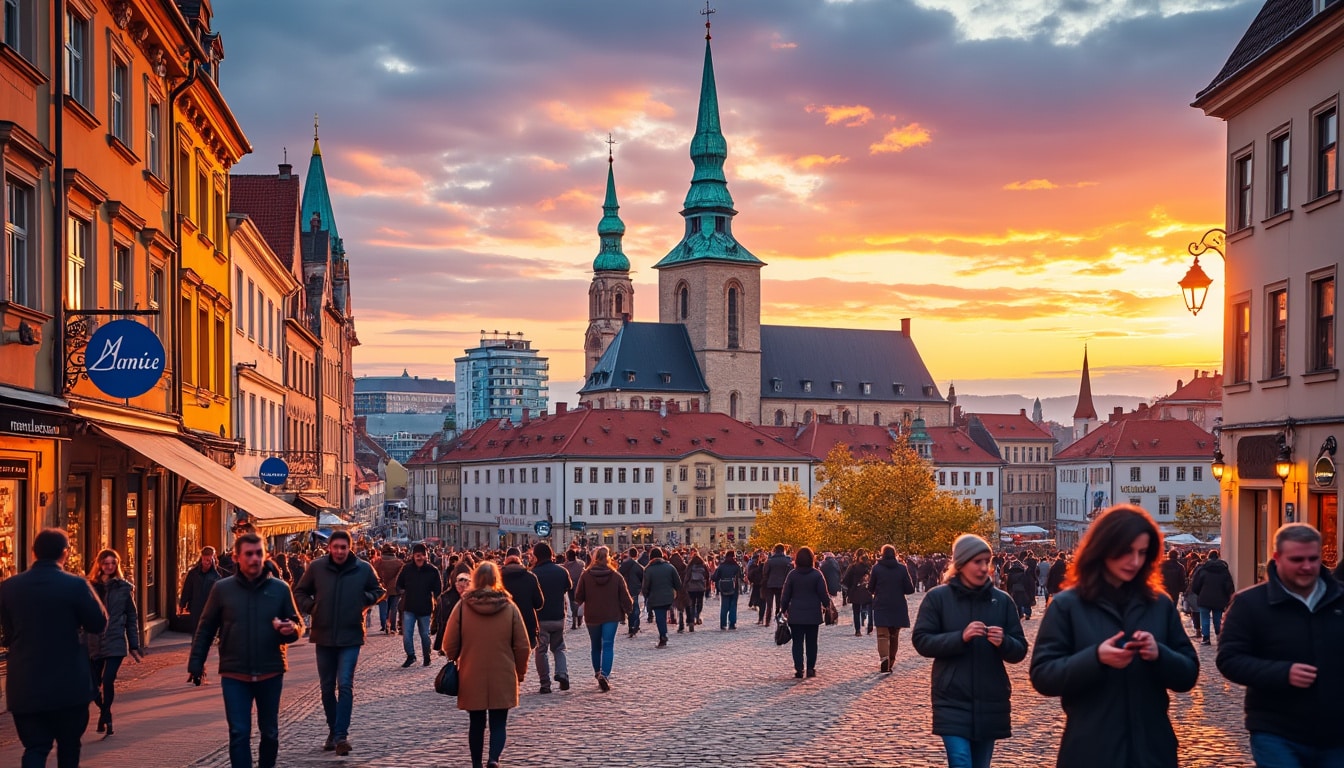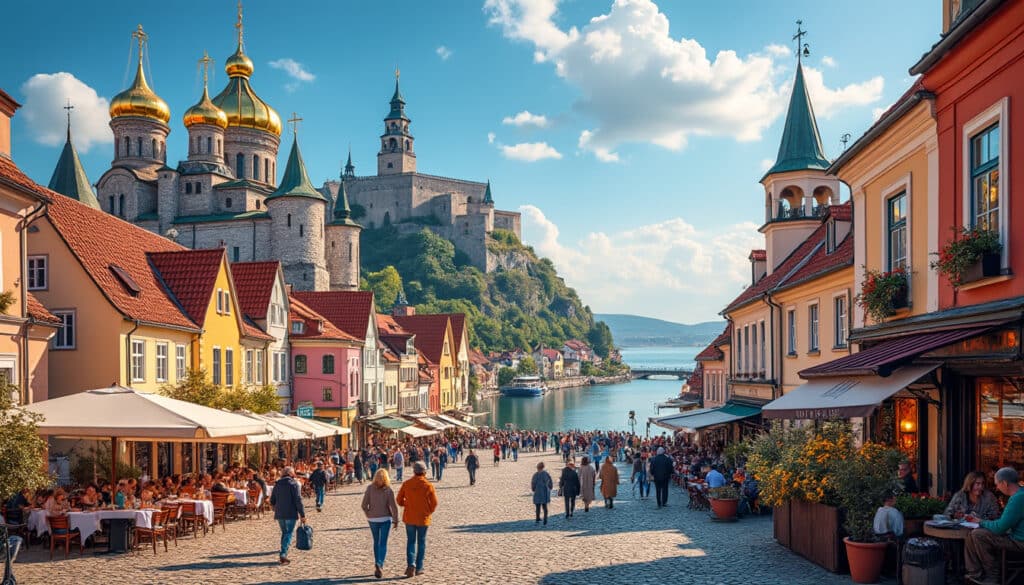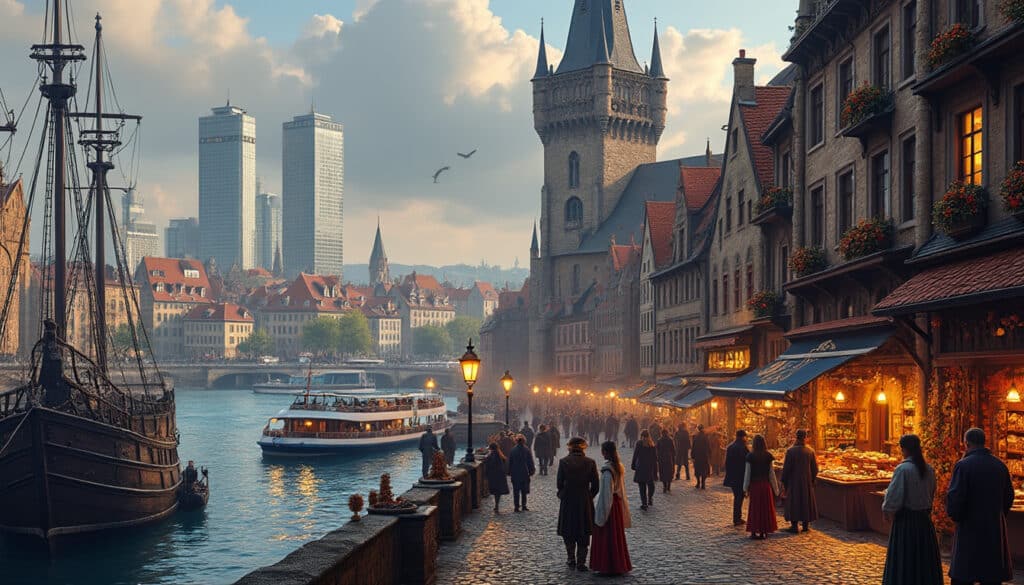Located at the northeastern edge of the Baltic Sea, Tallinn, the capital of Estonia, is a city where time embraces both tradition and modernity. Known for its charming medieval old town and vibrant cultural scene, Tallinn is a city steeped in history yet buzzing with contemporary life. For the unacquainted traveler or the curious reader, understanding the intricacies of time and time zones in Tallinn can enhance your experience—whether visiting virtually or in person. From daylight saving nuances to practical tips on planning your day, this article delves into how Tallinn manages time. Explore the cultural and geographical factors influencing the city’s clockwork and see how Tallinn connects with the rest of the world.
Understanding Tallinn’s Time Zone: EET and EEST
Nestled in the Eastern European Time Zone, Tallinn follows the rhythms of both Eastern European Time (EET) and Eastern European Summer Time (EEST). Let’s unravel what this means for its visitors and residents. 🌍
During standard time, which spans from the last Sunday in October to the last Sunday in March, Tallinn operates on EET. This means the city is two hours ahead of Coordinated Universal Time (UTC+2). However, once the annual clock shift happens in late March—March 30th, 2025, for instance—Tallinn switches to EEST due to daylight saving time, nudging the city to UTC+3.
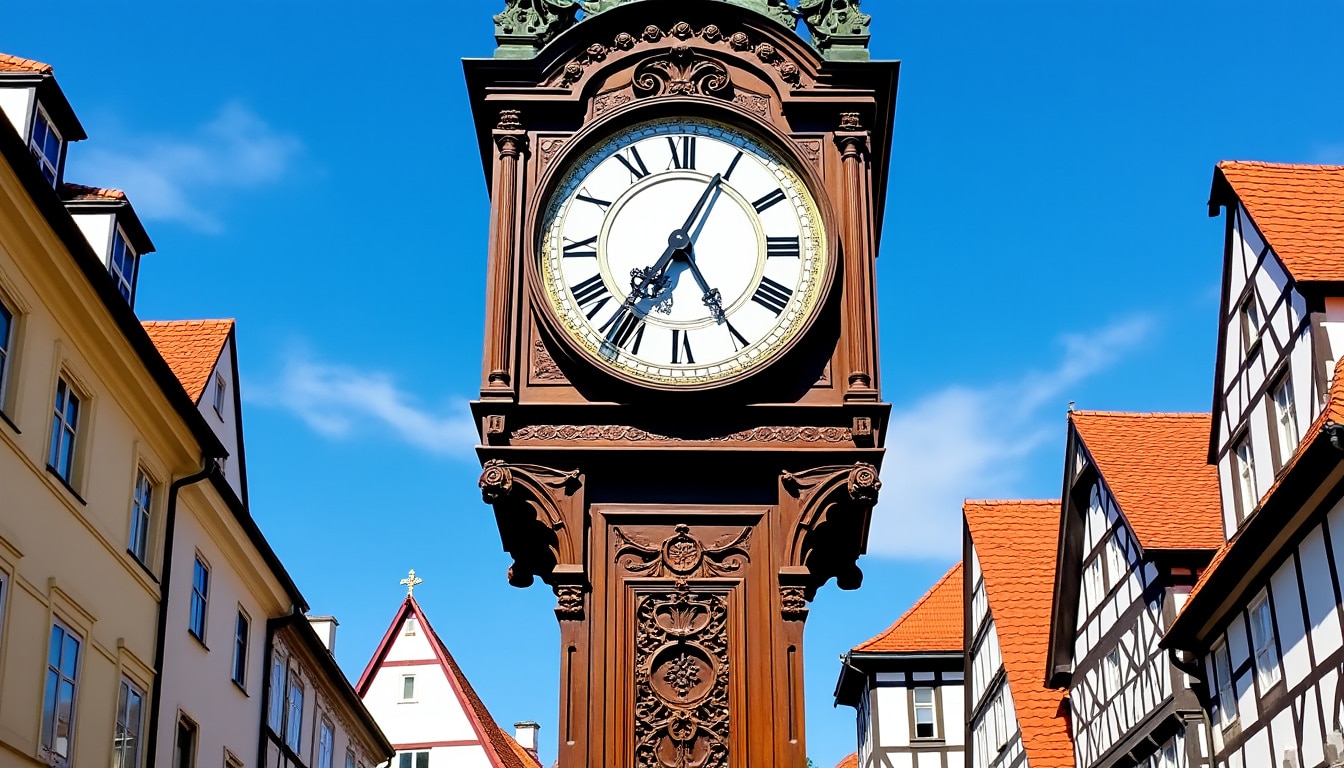
This transition is more than just a technicality; it reflects broader historical and seasonal practices. The shift aids residents by aligning daylight with human activity periods, optimizing daylight during the workday while minimizing energy use—a practice known as ‘Spring Forward’ or Summer Time. The clocks ‘Fall Back’ again in late October—October 26th in 2025, aligning with Winter Time norms.
Why does daylight saving time matter? Firstly, it helps sync daylight hours with typical waking periods, which can enhance mood and productivity through increased exposure to sunlight. Secondly, it supports energy conservation, a nod to sustainable practices vital in today’s climate-conscious world.
Let’s now take a broader view of how this local time zone connects internationally. 🌐 Tallinn’s time adjustments aren’t isolated phenomena; they’re part of larger coordination with other countries in the Nordic and Baltic regions. This integration ensures smooth international communications, whether scheduling webinars, planning travel, or engaging in global commerce.
To give context, here’s a handy list summarizing Tallinn Time Zone Details:
- 🌟 Eastern European Time (EET): UTC+2
- 🌼 Eastern European Summer Time (EEST): UTC+3
- 🔄 Daylight Saving Start: Last Sunday of March
- 🔄 Daylight Saving End: Last Sunday of October
Whether you’re dialing into a meeting from afar or planning a cultural visit, understanding Tallinn’s time nuances is a key to seamless interactions with this vibrant city.
Tallinn’s Time: Practical Implications for Daily Life
The management of time in Tallinn is more than a ritual; it shapes the daily life of every resident and tourist. From scheduling appointments to catching public transportation, aligning activities with the city’s time structure is essential.
For tourists, integrating with Tallinn’s time schedule involves understanding local business operations. Typically, Estonian businesses operate from 9 AM to 6 PM, aligning well with Europe’s common working hours. However, remember that during the winter months, daylight is considerably shorter. In December, for example, daylight in Tallinn might only run from 9 AM to around 3:30 PM, so planning excursions mid-morning is advisable for maximum light.
Framing your itinerary mindful of these parameters can not only help in better planning but also in savoring the best of Tallinn’s urban tapestry. Tallinn’s geographic coordinates (59° 26′ N Latitude, 24° 45′ E Longitude) provide more sunlight in the summer, sometimes more than 18 hours, allowing extended daylight adventures.
Here’s a quick guide to make the most of Tallinn’s time schedule:
- 🛍️ Shopping: Most retail stores open from 10 AM to 8 PM during weekdays.
- 🍽️ Dining: Restaurants typically serve dinner from 5 PM to 10 PM, aligning with Nordic dining habits.
- 🚆 Public Transport: Buses and trams run frequently from 5:30 AM to midnight.
- ⏰ Business Communications: Align calls or meetings during Estonian business hours for more effective interactions.
Remember these tips as cultural nuances play an integral role in making the most out of your visit or stay.
Impacts of Time Management on Technology and Travel
In today’s digital age, technology seamlessly integrates local time changes. Most smartphones and electronic devices automatically update time settings when connecting to networks in Tallinn. This convenience eliminates the hassle of manually adjusting your devices, ensuring they align with local Baltic Time as soon as landing.
For avid travelers or entrepreneurs, using a global time comparison tool is beneficial to effectively manage meetings or calls across time zones. Navigate time differences with confidence, turning what could be a potential logistical headache into a streamlined process.
The importance of timely travel extends beyond just technology. Tallinn’s strategic positioning makes it a hub for Baltic and Nordic travel. Coaches and ferries heading to neighboring capitals like Helsinki, Stockholm, or Riga benefit from Tallinn’s well-managed time structure. These connections knit Tallinn into a broader tapestry of Baltic and Nordic Time Zones, enhancing its appeal as a travel destination.
In a world increasingly interconnected, Tallinn serves as a timekeeper, bridging various time scales to ensure smooth and efficient transitions from one locale to another. Whether you’re traveling for pleasure or business, ensure these factors are in your calendar to maximize your experience.
Global Connections: Tallinn’s Position in the World Time Zone
As we discuss the intricacies of time and Tallinn’s position in the broader world network, it’s crucial to understand its historical and geographical significance. Referred to by other names such as Reval and Raeaeveli, this capital has a profound place in history. 🗺️
Positioned strategically near the Gulf of Finland, Tallinn operates on the Europe/Tallinn timezone and is often regarded as a connection point between Eastern Europe and Scandinavia. This geographical advantage has made it a central player in international trade historically and continues to influence its modern role.
Internationally, engaging with Tallinn means considering its position in the Eastern European Time (EET) and Eastern European Summer Time (EEST). The city’s connection to Greenwich Mean Time (GMT) is facilitated through a globalized framework that aligns Stockholm, Helsinki, and Riga, sharing similar time shifts and business schedules. Whether one’s focus is in the domains of trade, tourism, or technology, embracing Tallinn’s robust time structures facilitates smoother interactions.
Here is a useful table that shows Tallinn’s comparative position among other major cities:
| City | Time Zone | Offset | Daylight Saving Time |
|---|---|---|---|
| Tallinn | EET/EEST | UTC +2/+3 | Yes |
| Helsinki | EET/EEST | UTC +2/+3 | Yes |
| Stockholm | CET/CEST | UTC +1/+2 | Yes |
| London | GMT/BST | UTC +0/+1 | Yes |
| New York | EST/EDT | UTC -5/-4 | Yes |
Utilizing these insights, whether planning conferences, scheduling international meetings, or managing travel itineraries, the understanding of Tallinn as a significant player in the world time zone structure aids in creating an efficient network of global connections.
Influence of Geography on Tallinn’s Language and Identity
Tallinn’s identity is intertwined with time, not merely through the ticking of the clock but also in how its language and culture have evolved across centuries. For travelers, grasping this aspect illuminates the city’s multifaceted approach to both time and heritage.
With a native language branching out from the Finno-Ugric family, akin to Finnish and distantly related to Hungarian, Tallinn’s linguistic roots echo its adaptability and resilience. The historic interactions between traders and conquerors in Tallinn have led to a dynamic cultural exchange, influencing local dialects.
Besides language, time has shaped the city’s reputation and identity—Esteemed for its well-preserved medieval architecture and as a beacon of digital innovation simultaneously, as detailed through its history. This duality of old and new encapsulates how Tallinn views and respects the past while steadfastly progressing into the future.
As Tallinn continues to emerge on the global stage, its synchronized time systems further emphasize the city as a beacon of connection and coordination. A walk through Tallinn unveils how its timeline intertwines cultures, languages, and territories, reflecting an ever-evolving tapestry of human achievement.
Daylight and Climate: Affecting Tallinn’s Daily Rhythm
A vital aspect of understanding Tallinn’s time system extends beyond the clock and into natural phenomena, specifically how daylight and climate influence both daily life and seasonal activities.
Tallinn’s position close to the 60th parallel entails significant variations in daylight across the year. In midsummer, the city basks in nearly 19 hours of sunlight. Contrastingly, during midwinter, the sun barely peaks over the horizon, producing less than 6 hours of daylight—a stark reminder of its Nordic positioning.
Such variations influence cultural practices immensely. During the long days of summer, locals and tourists alike indulge in outdoor activities, exploring the city’s architectural gems or participating in festivals and fairs. Conversely, winter brings a sense of introspection and the opportunity to immerse oneself in cozy cultural experiences like trying Estonian cuisine in warm, inviting eateries.
Understanding these rhythms and how they interplay with timekeeping provides insight into the local lifestyle. For residents, leveraging Estonia’s naturally occurring cycles fosters a deeper appreciation of both cultural continuity and environmental stewardship.
To wrap up this section, here’s a glance at a table comparing seasonal daylight hours and activities in Tallinn:
| Season | Daylight Hours | Activities |
|---|---|---|
| Spring | 12-15 hours | Exploring parks, Historical tours |
| Summer | 17-19 hours | Open-air festivals, Beach outings |
| Autumn | 10-12 hours | Local cuisine tasting, Cultural festivals |
| Winter | 5-7 hours | Museum visits, Winter sports |
This vibrant interplay of light, time, and activity in Tallinn underscores the city’s unique character, standing at the confluence of natural beauty and urban sophistication. 🌅
Tallinn Time: FAQ
- What is the current time zone of Tallinn? – Tallinn is currently in Eastern European Summer Time (EEST), UTC+3, during daylight saving periods. The switch to Eastern European Time (EET), UTC+2, occurs at the end of October.
- How do I know if my phone’s time is accurate in Tallinn? – Modern smartphones typically update their time settings automatically when you arrive in Tallinn as long as your location services are enabled.
- Does Tallinn observe daylight saving time? – Yes, Tallinn observes daylight saving time, switching clocks forward one hour in March and back one hour in October.
By understanding how Tallinn structures and manages time, visitors and residents alike can immerse themselves in this Baltic gem, navigating its rhythms with confidence and ease. ✈️📅
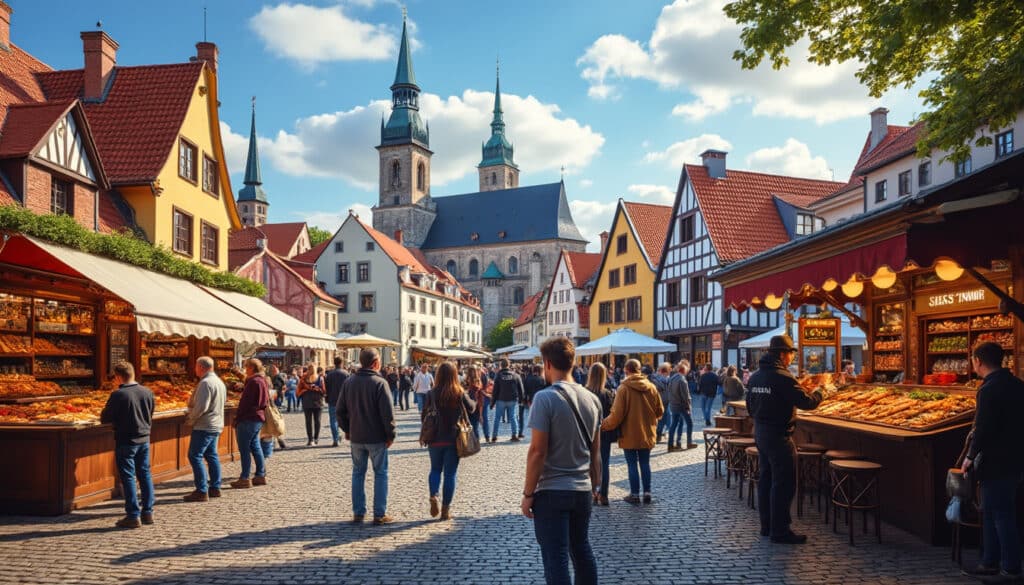
Fun Facts & Curiosities About Tallinn
The picturesque capital of Estonia, Tallinn, is a treasure trove of history, innovation, and delightful surprises. Whether you’re fascinated by medieval architecture or intrigued by modern technological advancements, Tallinn offers a blend of old-world charm and futuristic innovation. From its…
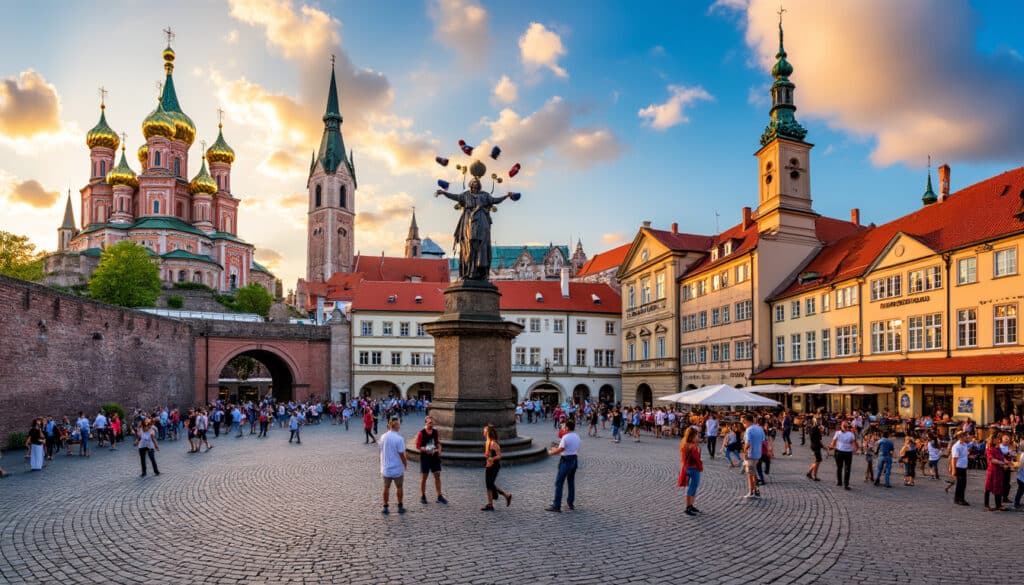
Architecture and urban features of Tallinn
As one wanders through the enchanting streets of Tallinn, Estonia’s capital, they are met with a city that is a tapestry of ancient and modern elements woven together through its architecture and urban features. Known for its well-preserved medieval Old…
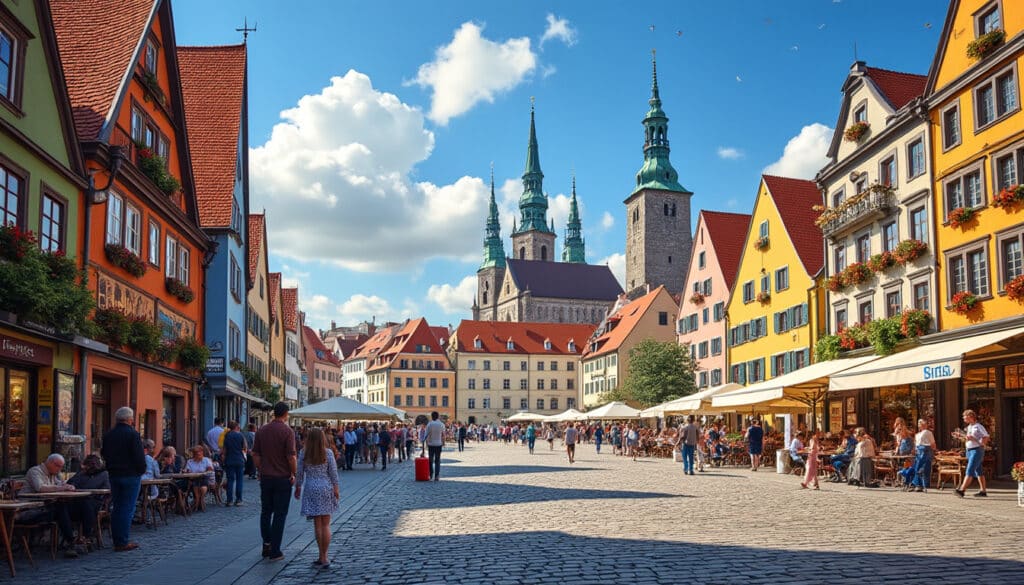
Welcome to the captivating city of Tallinn, where daily life intertwines with rich history, vibrant culture, and modern digital advancements. This Estonian capital, with its medieval Old Town and bustling contemporary neighborhoods, offers a unique blend of experiences for both…
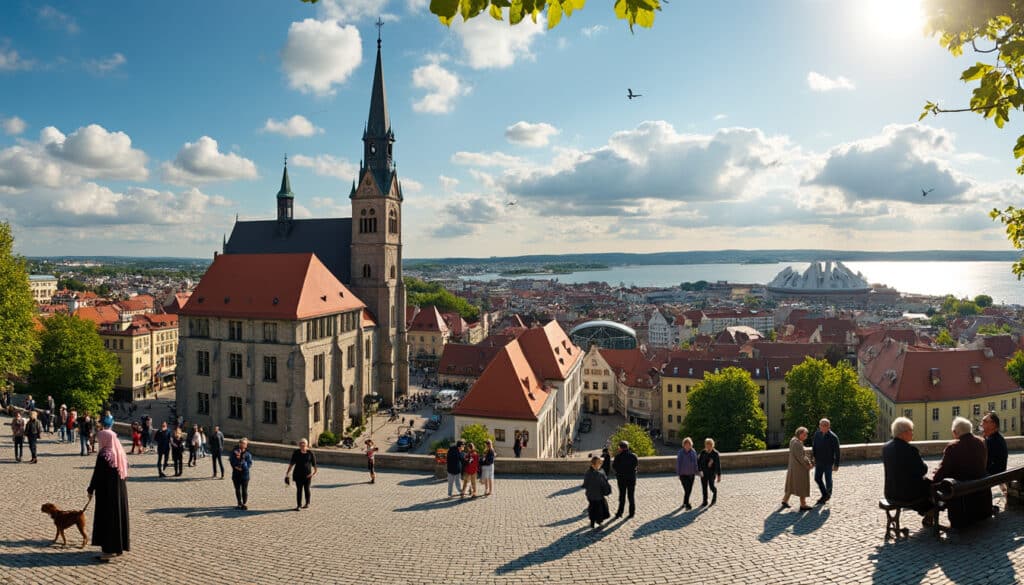
Demographics and geography of Tallinn
As the capital of Estonia, Tallinn stands as a beacon of Baltic history, culture, and modern innovation. Nestled on the northern coast of the country, facing the Gulf of Finland, this vibrant city is more than just its medieval charm—it…
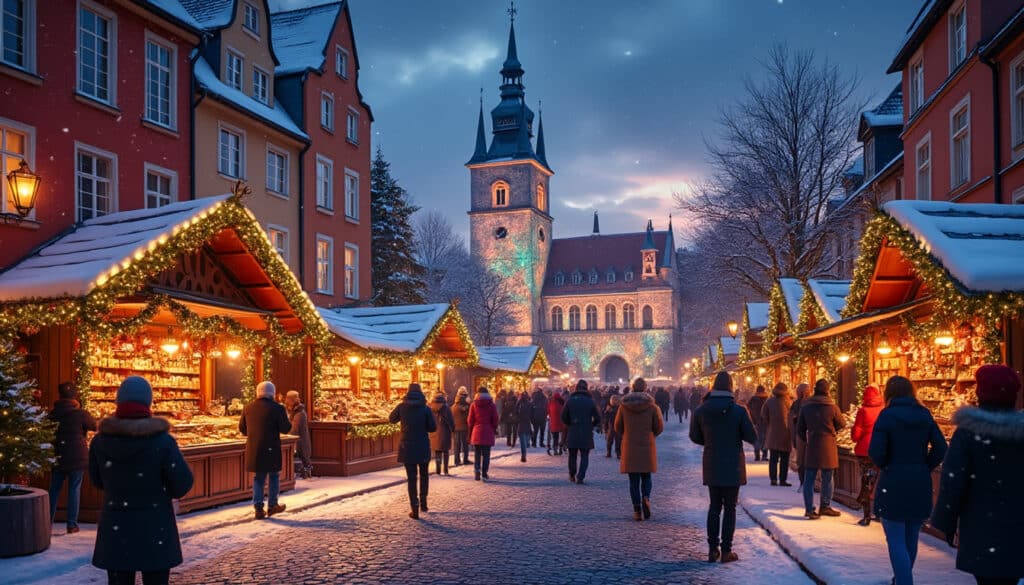
Holidays and celebrations in Tallinn
Explore the enchanting city of Tallinn, Estonia, where history and modernity blend seamlessly to offer myriad holidays and celebrations. From the vibrant Tallinn Christmas Market to significant national holidays, the capital of Estonia opens its heart to both locals and…
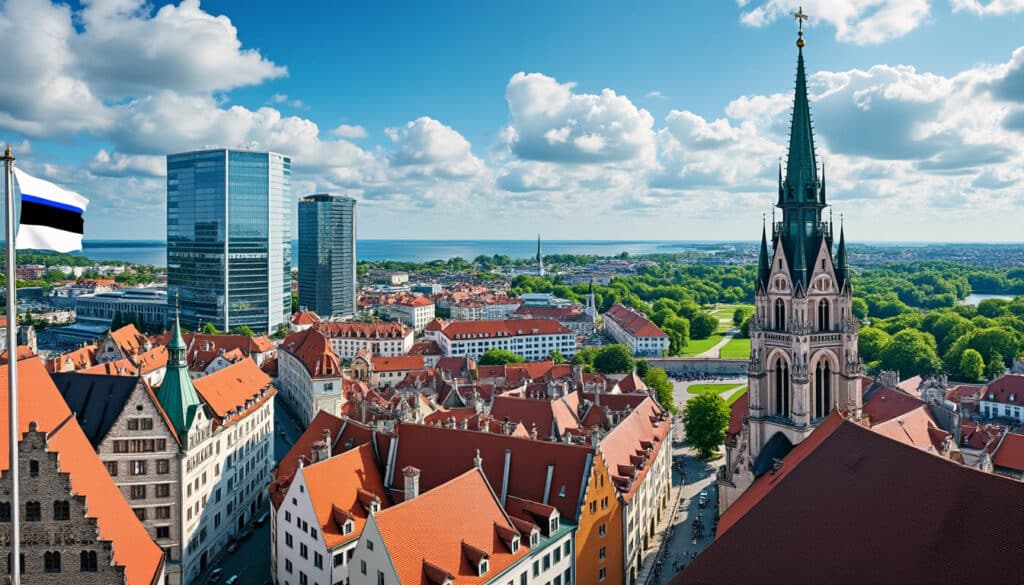
Language and spelling of Tallinn
Tallinn, the capital city of Estonia, is not only a hub of architectural beauty and cultural richness but also an intriguing subject when it comes to its language and spelling. Nestled on the northern coast of the country, this city…
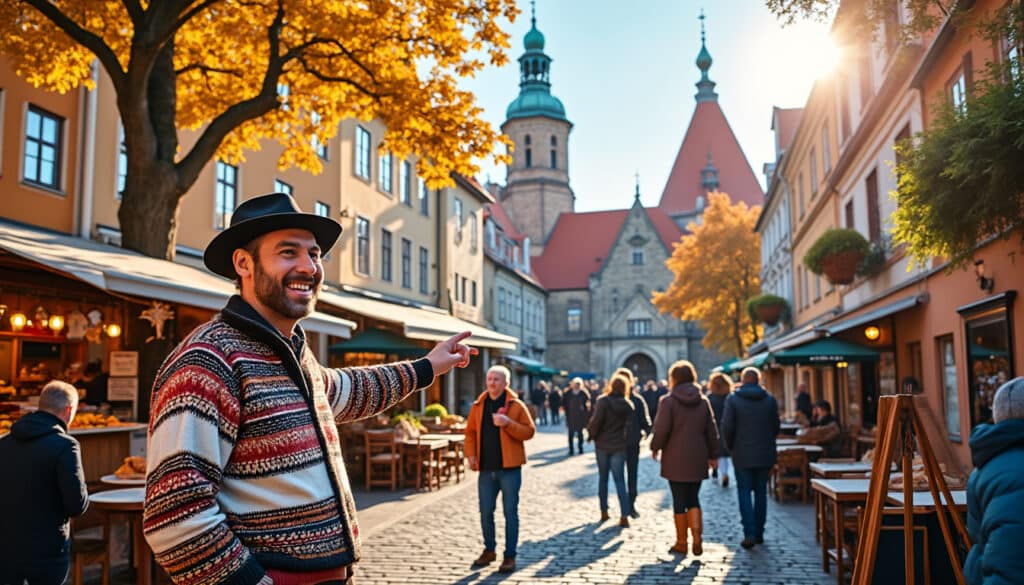
Local tips for tourists in Tallinn
Planning a trip to Tallinn, Estonia’s charming capital, might seem daunting given its rich offerings and relatively small size. Tallinn is a delightful blend of medieval architecture, modern innovation, and cultural enchantment. With a friendly population and rich history, this…
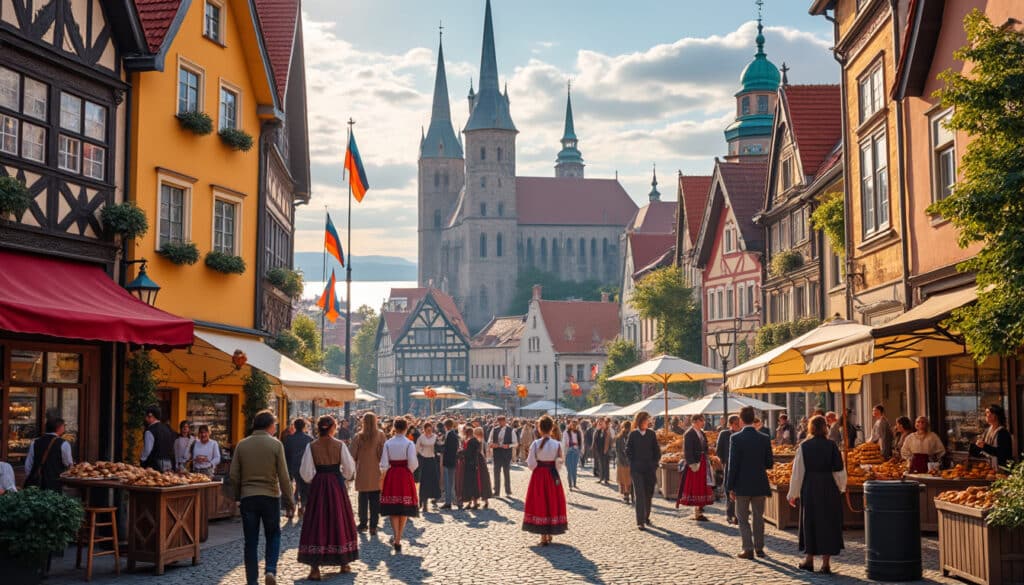
Names, flags, and identity of Tallinn
With its captivating blend of historical depth and modern dynamism, Tallinn, the capital city of Estonia, stands as a significant European hub. It’s a place where the past and present seamlessly coexist, showcased vividly through its many names and emblems.…
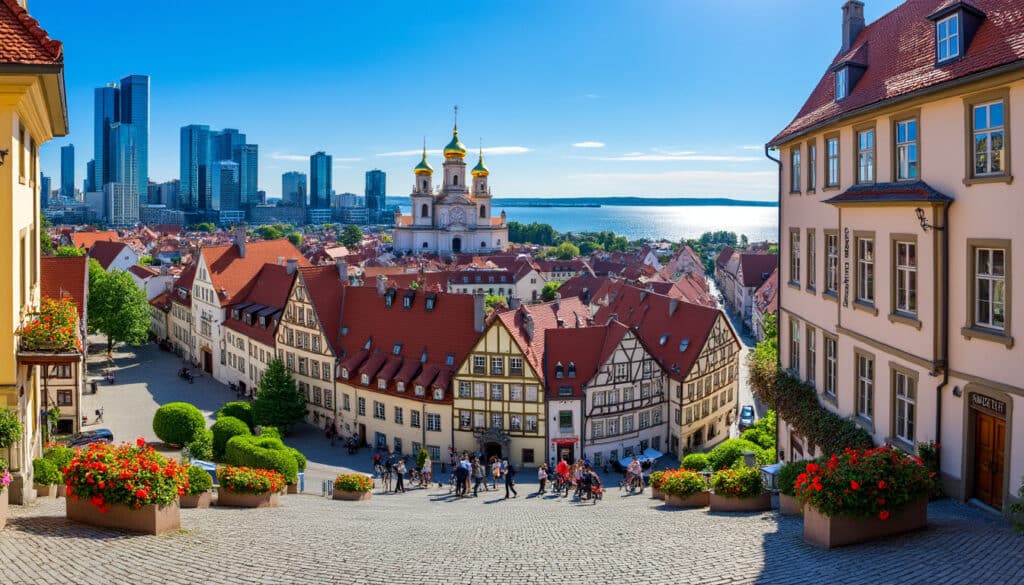
Reputation and identity of Tallinn
Tallinn, the capital city of Estonia, is a vibrant blend of medieval charm and digital innovation that captivates travelers from around the globe. Nestled on the northern coast of the Baltic Sea, this picturesque city has become a beacon of…
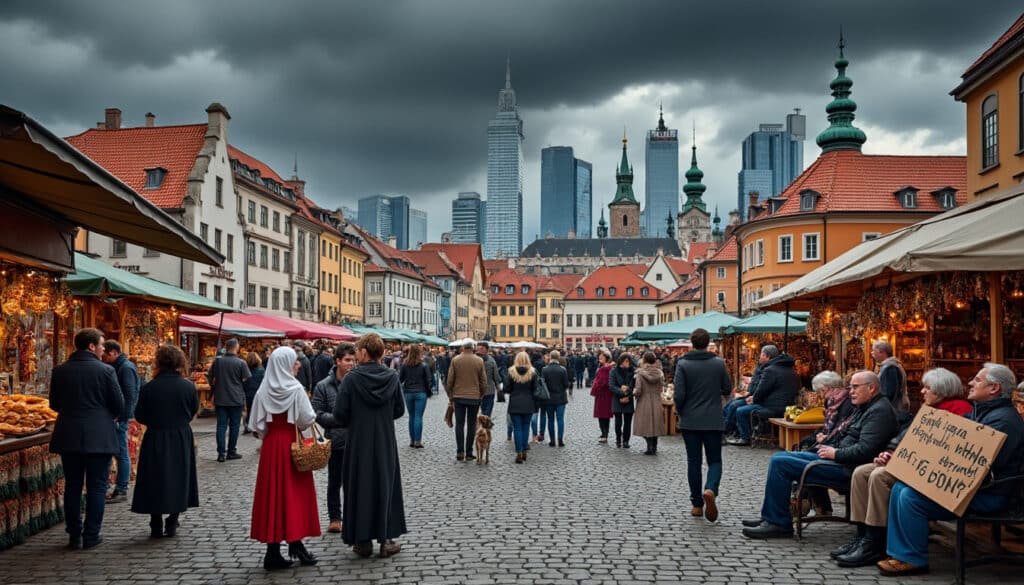
Unusual facts and social issues in Tallinn
The capital city of Estonia, Tallinn, offers a unique blend of medieval charm and futuristic innovation, making it a fascinating destination for both tourists and residents alike. Hidden within its cobblestone streets and modern advancements lie intriguing secrets and social…

What does Tallinn look, smell, feel like?
Nestled in the northeastern part of Europe, Tallinn, the capital of Estonia, is a city that effortlessly marries the charm of its medieval past with the vibrancy of its present-day innovations. Visitors often speak of its cobblestone streets that wind…

